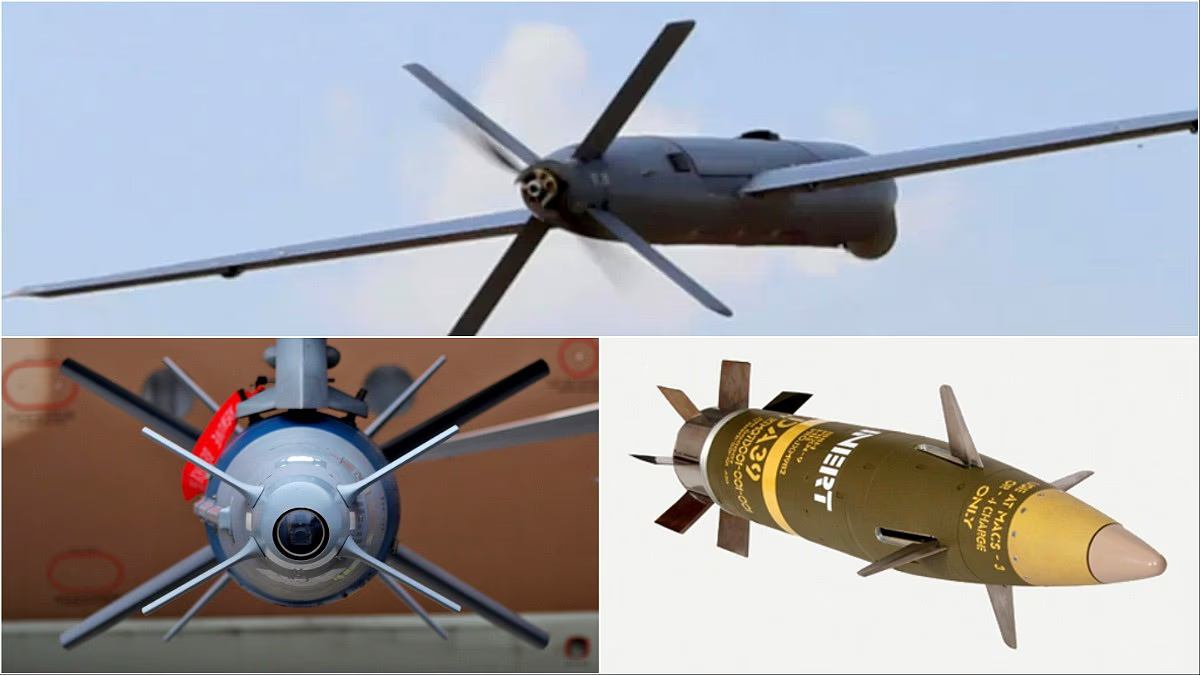On May 7, 2025, Operation Sindoor-1 marked a pivotal military operation by the Indian Armed Forces, targeting nine terrorist camps across Pakistan and Pakistan-Occupied Kashmir (PoK). This initiative was launched in retaliation to the April 22, 2025 terrorist attack in Pahalgam.
This operation showcased advanced precision weaponry such as the SCALP (Storm Shadow) cruise missile, HAMMER (Highly Agile Modular Munition Extended Range) precision-guided bombs, and loitering munitions, primarily deployed from Rafale fighter jets, M777 Howitzer cannons, and various platforms.
The attacks were "targeted, measured, and non-escalatory," deliberately sparing Pakistani military bases and minimizing civilian casualties. More than 100 terrorists from Jaish-e-Mohammed were neutralized.
Read Also: Witnessing the Rafale's dread, now Pakistan sees devastation... Swift strikes without crossing borders
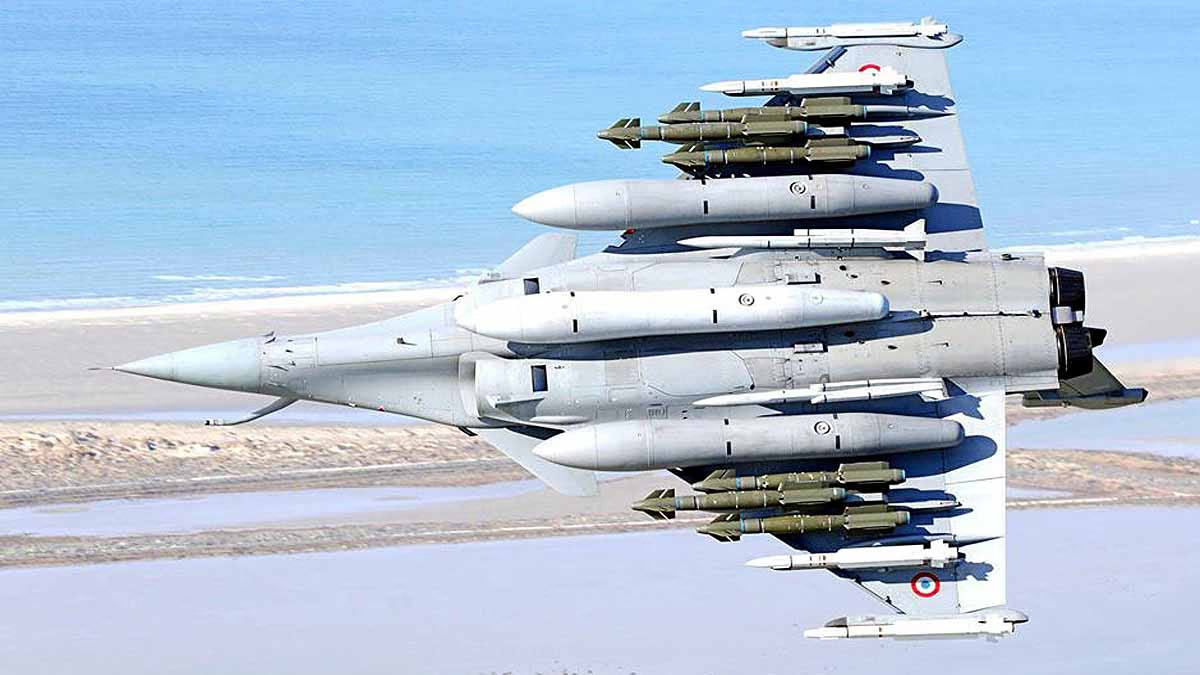
Source: aajtak
The Anticipated Operation Sindoor Part-2
As of yet, no official confirmation or detailed information about Operation Sindoor Part-2 is publicly available. However, it is speculated to follow its predecessor in targeting terrorist strongholds, utilizing advanced weaponry like the Meteor, Skystriker, Spice 2000 glide bombs, Excalibur precision-guided artillery shells, and other state-of-the-art arms.
Possible Scenario
Objective:
Eradicate remaining terrorist camps in Pakistan or PoK, focusing on those unaffected by Operation Sindoor-1.
Weapons:
Potential use of Meteor missile for air combat, Skystriker for loitering munitions, Spice 2000 for glide bombing, and Excalibur for artillery strikes, known for their precision and long-range capabilities.
Read Also: Before Sindoor, PAK was shaken by Lily and Kuma... Tales of 9 brave Indian operations
Strategy:
The Indian Air Force and Army might focus on stand-off attacks employing Rafale jets, M777 Howitzers, and drone-based weapons to minimize risk to Indian forces while maximizing impact.
Political and Diplomatic Impact:
Similar to Operations Sindoor-1, Part-2 might pose diplomatic challenges with the international community and neighbor nations.
Anticipated Weaponry Utilization
1. Meteor Missile
The Meteor is a Beyond Visual Range Air-to-Air Missile (BVRAAM) developed by Europe's MBDA. It's a key weapon of the Indian Air Force's Rafale jets. Meteor's standout features are its long range and "no-escape zone," making it extremely effective against enemy aircraft in air combat. Equipped with ramjet propulsion, it achieves supersonic speeds.
Read Also: What's the weapon that turned terror bases into 'skeletons'? Watch Video
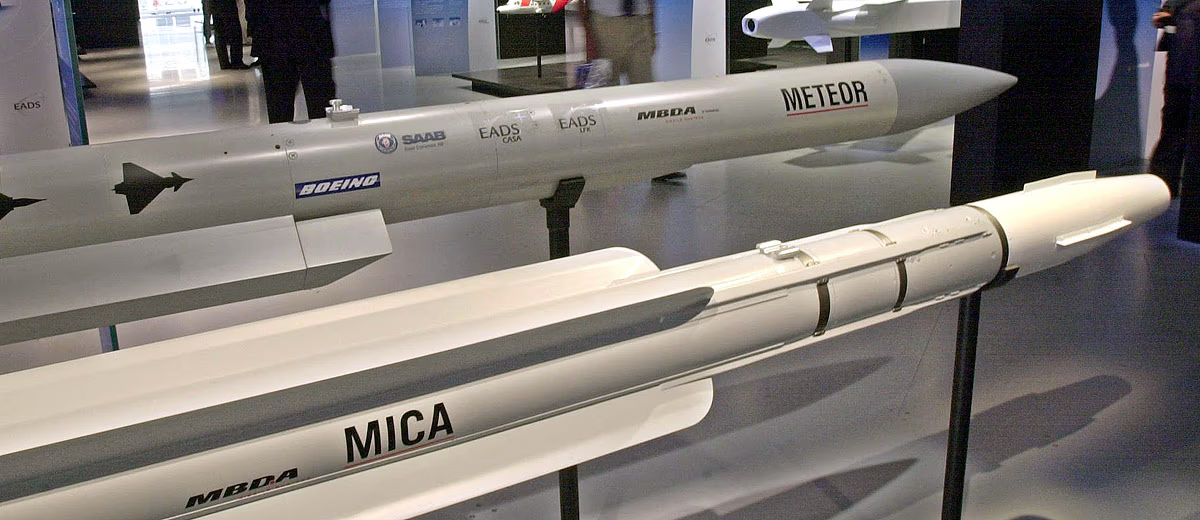
Source: aajtak
Range:
150-200 kilometers
Speed:
Over Mach 4 (around 4,900 km/hr)
Length:
3.67 meters
Weight:
190 kilograms
Warhead:
High-explosive blast fragmentation
Guidance System:
Active radar homing, data link
Platform:
Rafale, Tejas (potential future deployment)
Meteor's long range and accuracy make it a game-changer in aerial warfare, offering the Indian Air Force decisive leverage against neighbors like Pakistan and China.
Read Also: Lock target, then missile attack... This time India strikes PAK Israeli style!
2. Skystriker
The Skystriker is a loitering munition (kamikaze drone) developed by Israel's Elbit Systems. This weapon offers the capability to hover over enemy targets and execute precise attacks. The Indian Army selected it for its artillery and special forces to dismantle bunkers, command centers, and other critical targets.
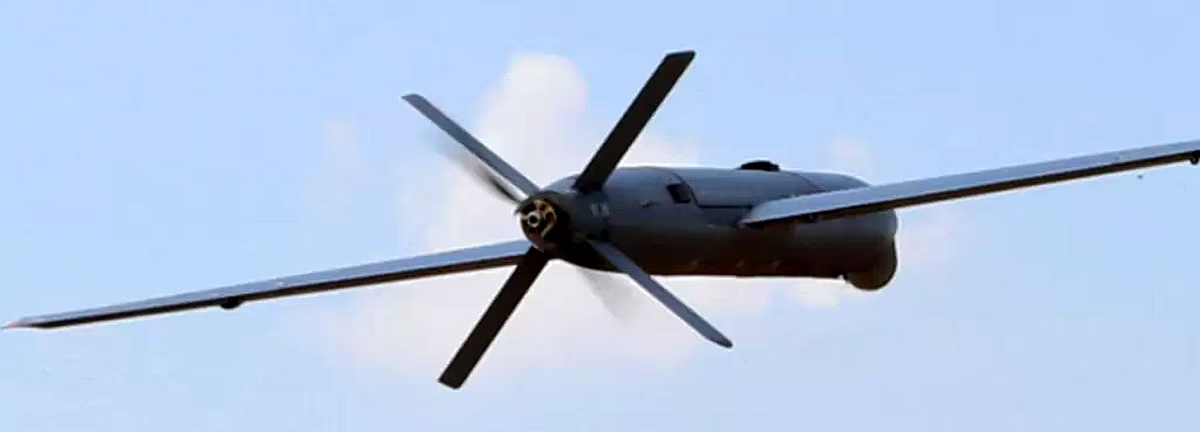
Source: aajtak
Range:
20-100 kilometers (varies by variant)
Loitering Time:
Up to 2 hours
Weight:
35 kilograms
Warhead:
5-10 kilograms high-explosive
Guidance System:
Electro-optical/infrared (EO/IR), GPS
Launch Platform:
Ground-based launcher
The loitering capability of the Skystriker enables it to track and destroy dynamic battlefield targets, proving crucial to operations like surgical strikes.
Read Also: Pakistan's air defense falters under Chinese 'HQ-9' allure! India picks off missiles selectively
3. SPICE 2000 Glide Bomb
SPICE 2000 (Smart, Precise Impact, Cost-Effective) is an Israeli guided bomb, used by the Indian Air Force in the 2019 Balakot airstrike. This bomb is renowned for its accuracy and long range. Deployable from Mirage-2000 and Rafale aircraft, SPICE 2000 can effectively destroy concrete bunkers and other formidable structures.
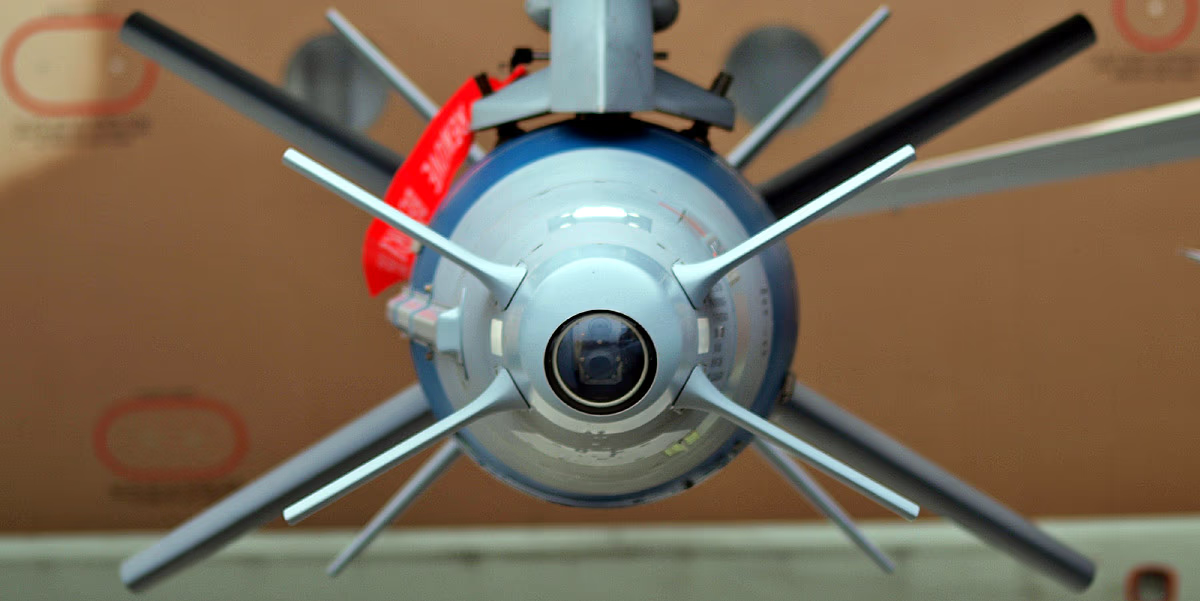
Source: aajtak
Range:
60-100 kilometers
Weight:
907 kilograms (2000 lbs)
Guidance System:
Electro-optical, infrared, GPS/INS
Warhead:
Penetrating or blast fragmentation
Accuracy:
Less than 3 meters (CEP)
Platform:
Mirage-2000, Rafale, Jaguar
Proven effective in Balakot, SPICE 2000 enables the Indian Air Force to execute stand-off strikes without entering enemy air defense zones.
Read Also: Midnight mastery: HAMMER, SCALP missiles and Rafale wreaked havoc over Pakistan!
4. Excalibur Precision Guided Artillery Shells
The Excalibur is a US-manufactured precision-guided artillery shell, acquired by the Indian Army for its M777 ultra-light howitzers. Known for its remarkable accuracy and range, it excels in urban warfare and mountainous regions, minimizing civilian damage.
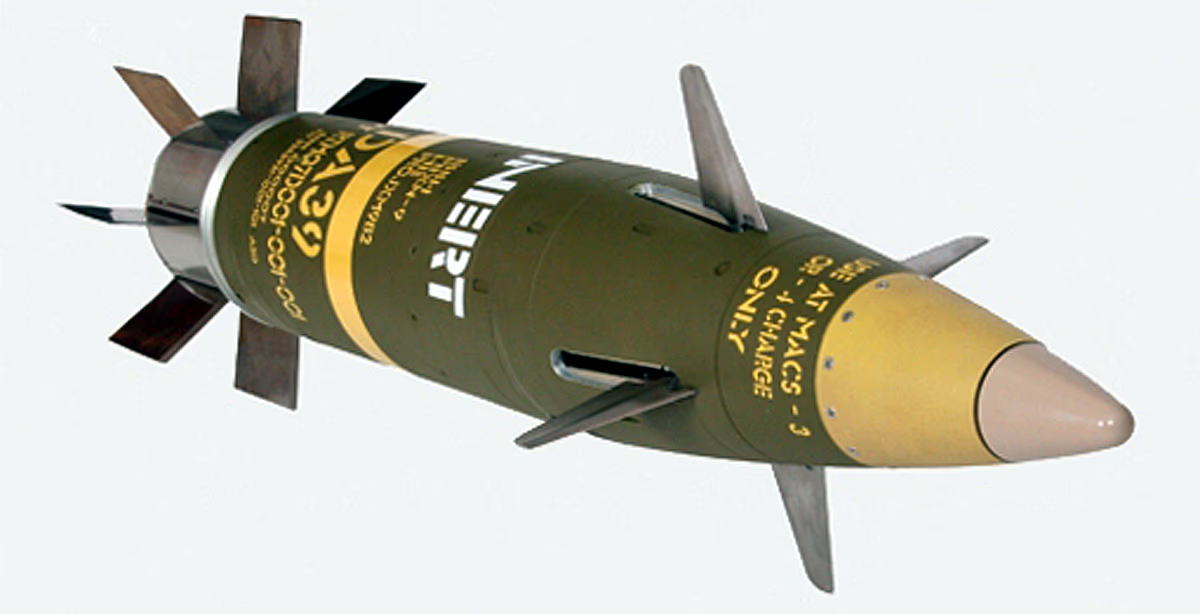
Source: aajtak
Range:
40-57 kilometers (determined by artillery type)
Weight:
48 kilograms
Guidance System:
GPS/INS
Accuracy:
Less than 2 meters (CEP)
Warhead:
High-explosive fragmentation
Platform:
M777 howitzer, other 155 mm guns
Excalibur shells empower the Indian Army to execute precise strikes in mountainous and border areas, notably along the India-China LAC.
5. HAMMER
HAMMER (Highly Agile Modular Munition Extended Range) is a French precision-guided bomb, acquired by the Indian Air Force for its Rafale jets. Designed for stand-off strikes, it is capable of neutralizing bunkers, caves, and robust structures.
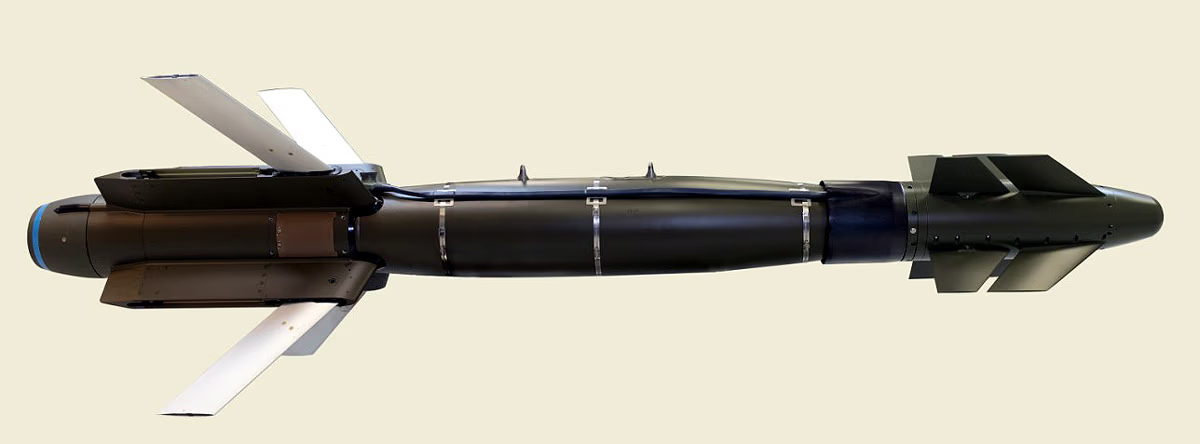
Source: aajtak
Range:
20-70 kilometers
Weight:
250-1000 kilograms (varies by variant)
Guidance System:
GPS/INS, laser-guided
Warhead:
Penetrating or blast fragmentation
Platform:
Rafale
6. SCALP (Storm Shadow/SCALP EG)
SCALP is a long-range cruise missile deployed from Rafale aircraft designed to destroy crucial targets deep within enemy territory.

Source: aajtak
Range:
Over 560 kilometers
Weight:
1300 kilograms
Speed:
0.8 Mach (about 1000 km/hr)
Guidance System:
GPS/INS, Terrain Reference Navigation
Warhead:
450 kilograms penetrating
Platform:
Rafale
HAMMER and SCALP enable the Indian Air Force to execute long-range, precise, and lethal strikes, crucial for strategic target destruction.
Role of These Weapons in India's Military Strategy
These weapons not only bolster India's military strategy but also reinforce the country's status regionally and globally. Weapons like Meteor and SCALP give India an edge in aerial warfare, while Skystriker and SPICE 2000 prove vital in surgical strikes and stand-off attacks. Excalibur artillery shells offer precision in mountainous and border zones.
India's arsenal serves not just as a defense mechanism but sends a clear message to adversaries that India is fully prepared to counter any threat. With these weapons, the Indian Army can defend its borders and, if necessary, initiate offensive strikes within enemy territories.
